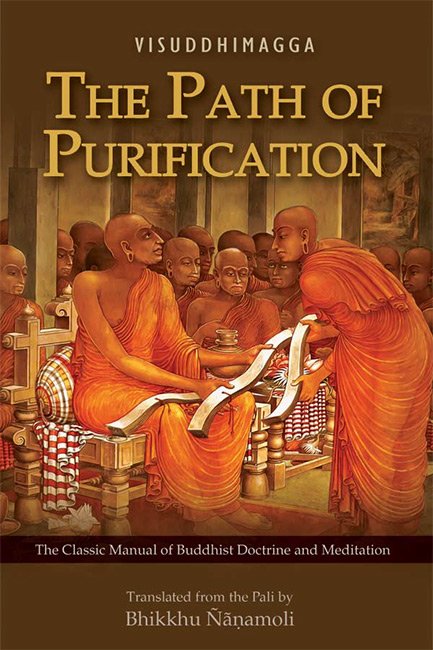Visuddhimagga (the pah of purification)
by Ñāṇamoli Bhikkhu | 1956 | 388,207 words | ISBN-10: 9552400236 | ISBN-13: 9789552400236
This page describes (6) Recollection of the Deities of the section Six Recollections (Cha-anussati-niddesa) of Part 2 Concentration (Samādhi) of the English translation of the Visuddhimagga (‘the path of purification’) which represents a detailled Buddhist meditation manual, covering all the essential teachings of Buddha as taught in the Pali Tipitaka. It was compiled Buddhaghosa around the 5th Century.
(6) Recollection of the Deities
115. One who wants to develop the recollection of deities should possess the special qualities of faith, etc., evoked by means of the noble path, and he should go into solitary retreat and recollect his own special qualities of faith, etc., with deities standing as witnesses, as follows:
“There are deities of the Realm of the Four Kings (devā cātummahārājikā), there are deities of the Realm of the Thirty-three (devā tāvatiṃsā), there are deities who are Gone to Divine Bliss (yāmā) … who are Contented (tusitā) … who Delight in Creating (nimmānarati) … who Wield Power Over Others’ Creations (paranimmitavasavatti), there are deities of Brahmā’s Retinue (brahmakāyikā), there are deities higher than that. And those deities were possessed of faith such that on dying here they were reborn there, and such faith is present in me too. And those deities were possessed of virtue … of learning … of generosity … of understanding such that when they died here they were reborn there, and such understanding is present in me too” (A III 287).
116. In the sutta, however, it is said: “On the occasion, Mahānāma, on which a noble disciple recollects the faith, the virtue, the learning, the generosity, and the understanding that are both his own and of those deities,” on that occasion his mind is not obsessed by greed …” (A III 287). Although this is said, it should nevertheless be understood as said for the purpose of showing that the special qualities of faith, etc., in oneself are those in the deities, making the deities stand as witnesses. For it is said definitely in the Commentary: “He recollects his own special qualities, making the deities stand as witnesses.”
117. As long as in the prior stage he recollects the deities’ special qualities of faith, etc., and in the later stage he recollects the special qualities of faith, etc., existing in himself, then: “On that occasion his mind is not obsessed by greed, or obsessed by hate, or obsessed by delusion, his mind has rectitude on that occasion, being inspired by deities” (A III 288).
So when he has suppressed the hindrances in the way already stated (§66), the jhāna factors arise in a single conscious moment. But owing to the profundity of the special qualities of faith, etc., or owing to his being occupied in recollecting special qualities of many sorts, the jhāna is only access and does not reach absorption. And that access jhāna itself is known as “recollection of deities” too because it arises with the deities special qualities as the means. [226]
118. And when a bhikkhu is devoted to this recollection of deities, he becomes dearly loved by deities. He obtains even greater fullness of faith. He has much happiness and gladness. And if he penetrates no higher, he is at least headed for a happy destiny.
Now, when a man is truly wise,
His constant task will surely be
This recollection of deities
Blessed with such mighty potency.
This is the section dealing with the recollection of deities in the detailed explanation.
